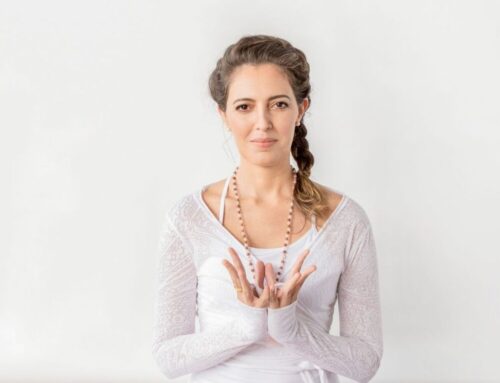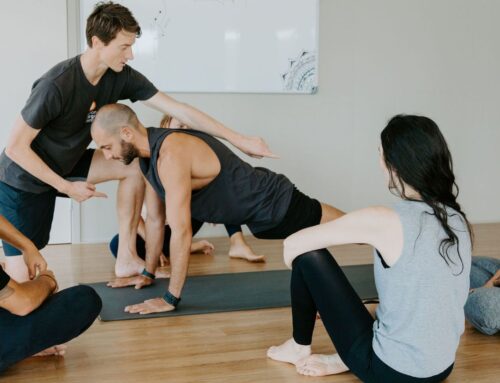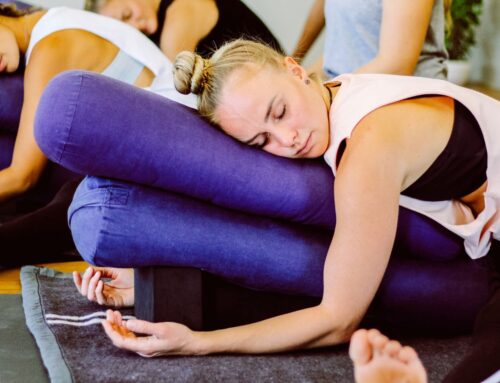
Sitting with eyes closed and mind focused seems a simple thing. Yet for anyone who’s ever sat and tried to meditate while battling with thoughts that jump from judgements to menial distractions, it can be excruciating. Simplifying your approach may be the key to get beyond these, explains Byron Yoga centre meditation teacher Stephan Kahlert.
“The most common thing that puts people off meditating is the constant arising of thoughts,” says Stephan. “But the mind is made up of thoughts and as your mind is your meditation vehicle, thoughts are part and parcel of meditation.
"Instead, we try not to engage with thoughts.”
Start by forgetting about what meditating should be like. Reject expectations of having an exotic or esoteric experience and hold the intention only to be present in the moment. An effective technique to anchor the mind in the presence is to observe your in-breath and out-breath without trying to control it.
“Feel the sensation of the breath on your nostrils, your upper lip, feel your chest and belly moving to accommodate,” says Stephan. “You may wish to count the breath using ‘one, two’ over and again. Concentration – known in Sanskrit as Dharana – brings a meditative space.”
Developing concentration does not happen overnight. Try to avoid berating yourself if you find thoughts competing for your attention or you become emotionally engaged with them. Simply bring your attention back to the breath and do this every time you find yourself engaged with your thoughts.
“Observing your thoughts creates distance between the watched and the watcher, between the subject and the object,” says Stephan. “You give your thoughts energy, so when you withdraw that, your thoughts start to slow down. The meditation technique is less important, don’t become wedded to technique.”
|
General tips to enhance meditation
|
For first-time meditators or those needing inspiration or motivation, Stephan advocates finding a meditation group, perhaps at a yoga or Buddhist centre. Meditation teachers will give guidance and support and encourage you to sit longer than you may otherwise. Group meditations also create a stronger vibration to inspire you than when doing meditations at home. “If you’re lucky enough to sit with an enlightened person, you will benefit from their vibrations,” says Stephan.
“This is not to say that you need to find a guru,” Stephan adds. “People tend to project their unresolved issues on a guru or spiritual leaders, thinking they can solve them. But everyone is master of their own destiny with the power to make changes and improvements, one step at a time.”
It’s often useful to hear other people’s experience of meditation and to have support if your meditation leads to some larger, long-term changes. Odd sensations may arise while meditating, such as colours, patterns, distortions of perspective or perception, strong emotions or memories. These may be unsettling and it helps to have the support of a teacher and group. “Be gentle and forgiving of whatever comes up,” says Stephan. “Try not to place too much importance on the effects but do try to relax, as it makes being observant much easier.”
Stephan has been meditating in Hindu and Buddhist traditions for 18 years, and teaches on our retreats in Byron Bay as well as overseas. He avoided yoga for many years, thinking that yogis were obsessed with their bodies whereas meditators were interested in the mind. “I started experiencing back pain and felt tight and stiff. So I followed my wife Bettina to a yoga class with John Ogilvie and became hooked,” says Stephan. Stephan will be leading meditation sessions on our Bali retreat in August and in India in November. He'll establish a group practice and help you to practice the techniques he's outlined in this article.
When asked about advice for the practitioner who doesn’t feel like meditation is working, Stephan says, “If you have become miserable by trying meditation, perhaps you are not yet ready. Some people have all manner of problems which gives them huge motivation to meditate. If you are ready, you will get the benefits, it doesn’t matter if your circumstances aren’t ideal.”




